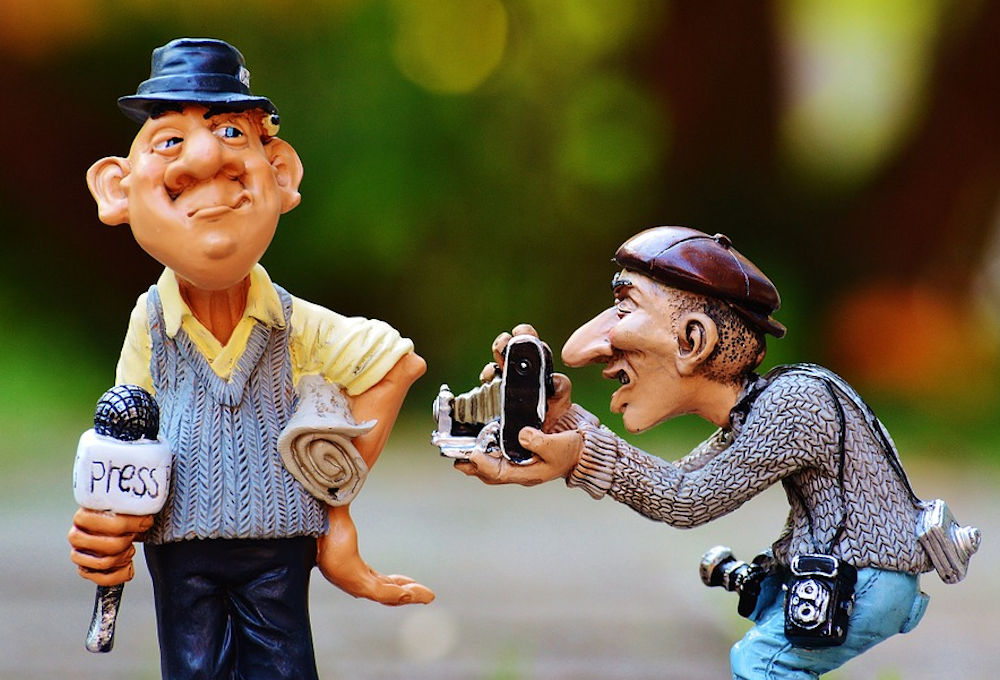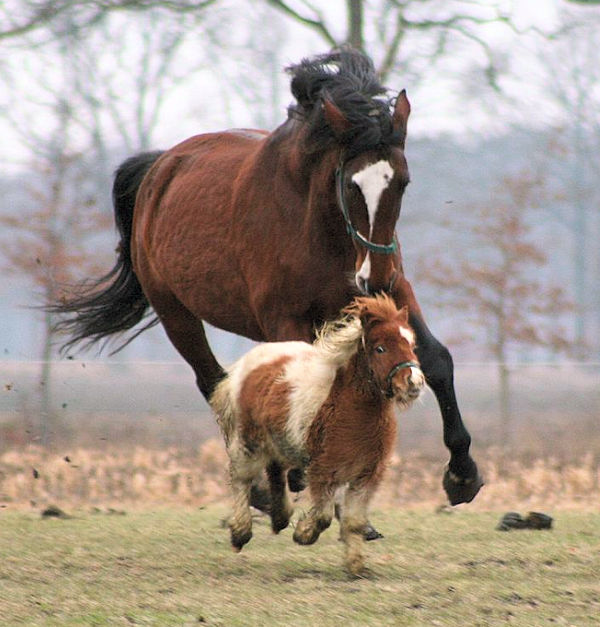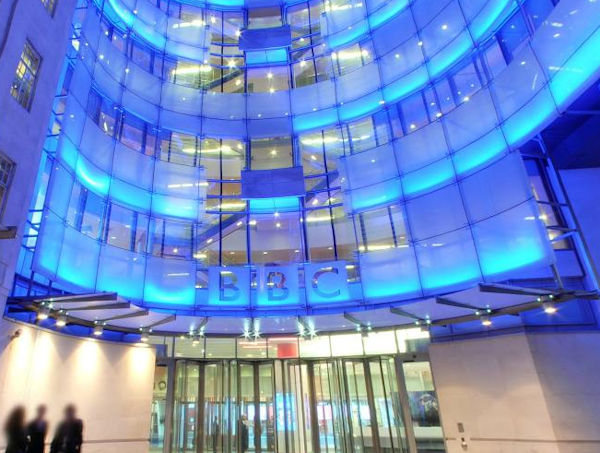
By Warren Nunn
The BBC has conducted a campaign which it claims will help people better understand evolution.
It can be found at https://www.bbc.com/news/science-environment-45564594
Unfortunately, the article is not an example of good journalism. Rather it fails to uphold some basic journalistic precepts.
Journalists are meant to be the most sceptical of the sceptical, putting to the test claims that others make and questioning the thinking behind the claims and what the alternative claims are.
(As a side note here, I am giving links to wikipedia references, mostly because I want a “hostile” witness to explain certain concepts, not someone with whom I necessarily agree.)
The BBC article asserts: “Scientific understanding of evolution is well accepted in the UK, compared with other countries, but past surveys have suggested that at least one in five of people are unsure about it.”
The article then goes on to state that apes and humans are descended from a common ancestor.
How to reword and challenge
A news organisation should rather be phrasing that statement along the lines that the “majority of scientists claim apes and humans are descended from a common ancestor”.
It is an important distinction. The BBC should at this point be informing readers that there is an alternative explanation.
The article quotes Dr Kay Fountain, a veterinary scientist studying the evolution of bacteria in bats, who says (referring to an elephant hoof) that, over millions of years of evolution, animals lost their side toes and developed a single hoof.
That is the assertion that scientists make but it could equally be the case that an elephant always had a hoof.

Claims are just that; claims
The idea of ‘side toes’ is pure conjecture; that’s not the product of observable scientific endeavour; it’s an unprovable claim and should be revealed as such by the media.
Equally I cannot prove that an elephant always had a hoof.
The article then quotes Dr Momna Hejmadi who says the research shows it is better to teach genetics first, namely the basics of how inheritance works – to get a better understanding of evolution.
Actually it’s almost impossible to get any consensus on a definition of evolution.
Speciation is not ‘evolution’
Many evolutionists conflate speciation with evolution. Changes within a kind are not evolution. Evolution as Charles Darwin described it is the development of lower forms to higher forms.
At this point it is easy to see how confusing the subject is. No one can prove how life first came into being and your understanding about how life began impacts all understanding about the world.
So, it is even more vital for journalists to be “informing”, not taking sides on these questions.

This wikipedia image of horses comes with the following caption: Size varies greatly among horse breeds, as with this full-sized horse and small pony. It underscores that what you believe about the origin of life will inform your understanding of why the variety within the horse kind occurs.
Speciation is variation within an established “kind”. A horse is a horse whatever size; likewise a dog, etc.
From the smallest to largest horse, the information that makes a horse a horse is already there. It will always be a horse. The differences within the horse kind speak to unimaginable complexity.
Now, most scientists will say that’s just what evolution delivered over long periods of time.
Questioning so-called evidence
That’s a matter of debate and not one with which I agree, but the point of this exercise is to bring journalists to account for sloppy reporting.
Journalists should be asking the question of why these things are “evidence of evolution”.
Not a difficult proposition. It’s what journalists are trained to do.
“Because evolution is life itself, all life on Earth has an evolutionary basis,” Dr Momna Hejmadi says.
Ignoring the need for a real definition
Again, the BBC doesn’t define what evolution is in this context.
I suspect Dr Momna Hejmadi means speciation and thinks speciation means evolution.

The BBC’s London building.
Then there are seven questions to ‘test’ the reader’s ‘understanding’ of ‘evolution’ but nowhere is evolution defined; so the whole exercise is flawed.
Here are the questions with my observations. You can disagree with my conclusions, I have no problem with that, however, the questions need to be challenged.
Q1: Humans are still evolving. True or false?
The BBC say that’s true when it’s actually false. The BBC says humans are continuing to evolve, ‘as are other animals, including the apes’. Further that, “We’re still evolving new characteristics that help us survive in a changing world, from drinking milk to fending off diseases.’
All totally untrue because we are actually ‘de-volving’ as the gene pool shrinks and more and more genetic copying mistakes appear in all living creatures. That’s observable, scientific fact as opposed to the BBC blandly parroting what the scientists claim.
Q2: Evolution can only happen slowly, over long periods of time. True or false?
The BBC says the answer is false and give some so-called examples. The question assumes that evolution is established fact. However, the reality is that the evolution of which scientists speak has never been observed. It is a claim of science but the “evidence” can and should be questioned. A journalist should point that out.
Q3: The giraffe’s long neck is an example of evolution. True or false?
The BBC says that’s true deferring to Charles Darwin and natural selection. It’s actually false, because the only evidence we have is that a giraffe’s neck has always been long.
Q4: Evolution can cause an individual to change during their lifetime. True or false?
The BBC says that’s false and it is. However, the explanation that follows is based on unprovable assertions about things that supposedly occurred in the unobservable past. Fairly easy for a journalist to question that and point out the problem to readers. However, the reverse is the case.
Q5: Humans are descended from monkeys. True or false?
The BBC say that is false and it is. But the BBC again cites the common ancestor canard which is conjecture, not science. Journalists can equally propose that humans have always been humans, totally separate from monkeys, and there never was a “common ancestor”.
Q6: Evolution results in progress; organisms are always getting better through evolution. True or false?
The BBC says that is false and it is. However the BBC is still locked into ‘the-evolution-is-fact-paradigm-and-we-can’t-question-it’. Again it overlooks the alternative fact that organisms have always been pretty much the same as they are now but with great variety as a result of speciation/natural selection.
Q7: Evolution and religion are not necessarily incompatible. True or false?
The BBC says this is true but the question itself is totally confusing. There is no definition of either evolution or religion to make any informed comparison. I don’t accept Charles Darwin’s explanation of origins and I would not accept many definitions of religion.
Actually, I see evolutionism as a religion. Religion is about adhering to concepts. Just because they are mostly associated with belief in a higher being doesn’t mean those who reject the idea of a higher being are not “religious”.
It is a matter for debate and journalists should be at the forefront of encouraging such discussions.

So-called evolutionary connections, according to https://en.wikipedia.org/wiki/Human_evolution
Question, question, question
My question to the BBC and the media in general:
Scientific reporting means reporting only what the majority of scientists say is fact. True or false?
FALSE: So-called established scientific facts can and should be questioned by the media.
And the media should encourage students to question scientific concepts in the classroom.
Any other approach is pure indoctrination in one way of thinking.
To report it any other way is both bad science and bad journalism.
Final thought
Here’s a challenge. Think of any subject on which you have strong views.
Do you want journalists only to give you a completely opposite explanation of that subject and almost exclusively ignore your understanding?
It’s obvious to you that you’re comfortable with your understanding. You have a perfect right to have an opinion and express it.
You have the right to question others who disagree with it. It works both ways, doesn’t it?
You would not want to have the other side’s opinion shut down, or, even worse, denied the right to express an opinion.
Just what journalists should do
It’s the very space into which journalists should be rushing; to uphold your right to have an understanding and to freely express that.
Journalism is very simple. Gather information and present as many opinions (for, against or neutral) to inform readers.
Inform readers and don’t twist or leave out information.
Challenge a journalist to challenge you.
Challenge me, a journalist since 1972.

Recent Comments